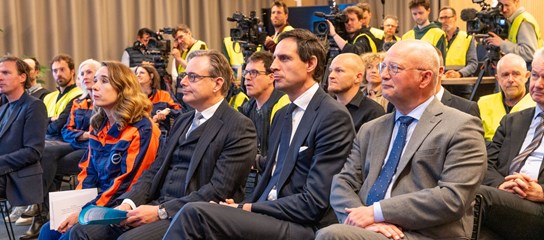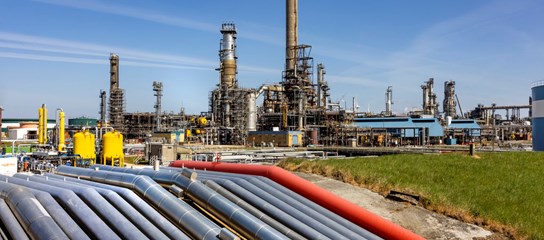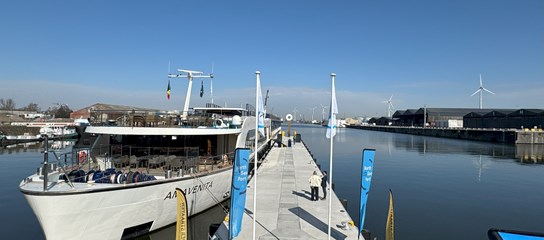Acquisition of Evolution Terminals by LBC Strengthens North Sea Port’s Leadership in Energy Transition
Evolution Terminals had already proposed constructing a state-of-the-art tank terminal for renewable energy products in Vlissingen. LBC will continue to execute these plans, which were previously developed in collaboration with North Sea Port.
Cutting-edge terminal for maritime and inland shipping
With this project, LBC is investing in the construction of a new terminal designed for handling and storing sustainable products that drive the energy transition, such as green hydrogen, ammonia, methanol, biofuels, and CO2. The ultramodern terminal will be located near the entrance to Sloehaven in Vlissingen, offering access to deepwater facilities. It will be equipped to accommodate the latest-generation large ammonia tankers. In its initial phase, the tank park will have a capacity of 150,000 m³.
The terminal will include two berths for sea vessels and three for inland vessels. It will also be connected to rail and pipeline networks. Operations at LBC Vlissingen are expected to commence by the end of 2028.
Plans for a brand-new tank terminal focused on renewable energy
“More than a milestone”
This project will further solidify North Sea Port’s position in Vlissingen as a key hub for the production, handling, and distribution of sustainable products. It also contributes to North Sea Port’s goal of becoming climate-neutral by 2050, with hydrogen playing a pivotal role in the energy transition.
“This acquisition represents more than just a milestone for LBC,” emphasized CEO Frank Erkelens. “It is a clear testament to our commitment to being a leader in the energy transition. Through this project, we are investing in a greener future for the Netherlands, Northwest Europe, and beyond.”
Maarten den Dekker, Chief Sustainability and Digital Officer of North Sea Port, agrees: “This investment in a liquid terminal for low-carbon hydrogen marks a significant step in expanding the hydrogen cluster within North Sea Port and supports the energy transition in the Netherlands and beyond. The terminal, which is expected to be operational in 2028 and includes a cracker, will provide a substantial boost to the development of the hydrogen network in the region, encompassing both the Netherlands and Belgium. With this new terminal, North Sea Port strengthens its position as the largest hydrogen hub in the Benelux, reinforcing its leading role in the energy transition.”
Expanding presence in the Dutch-Belgian Delta
With this acquisition, Rotterdam-based LBC establishes its eighth terminal, bolstering its presence in the Dutch-Belgian delta region. LBC already operates terminals in Rotterdam, Antwerp, and the U.S. Gulf Coast. Now, it gains a foothold in North Sea Port.




